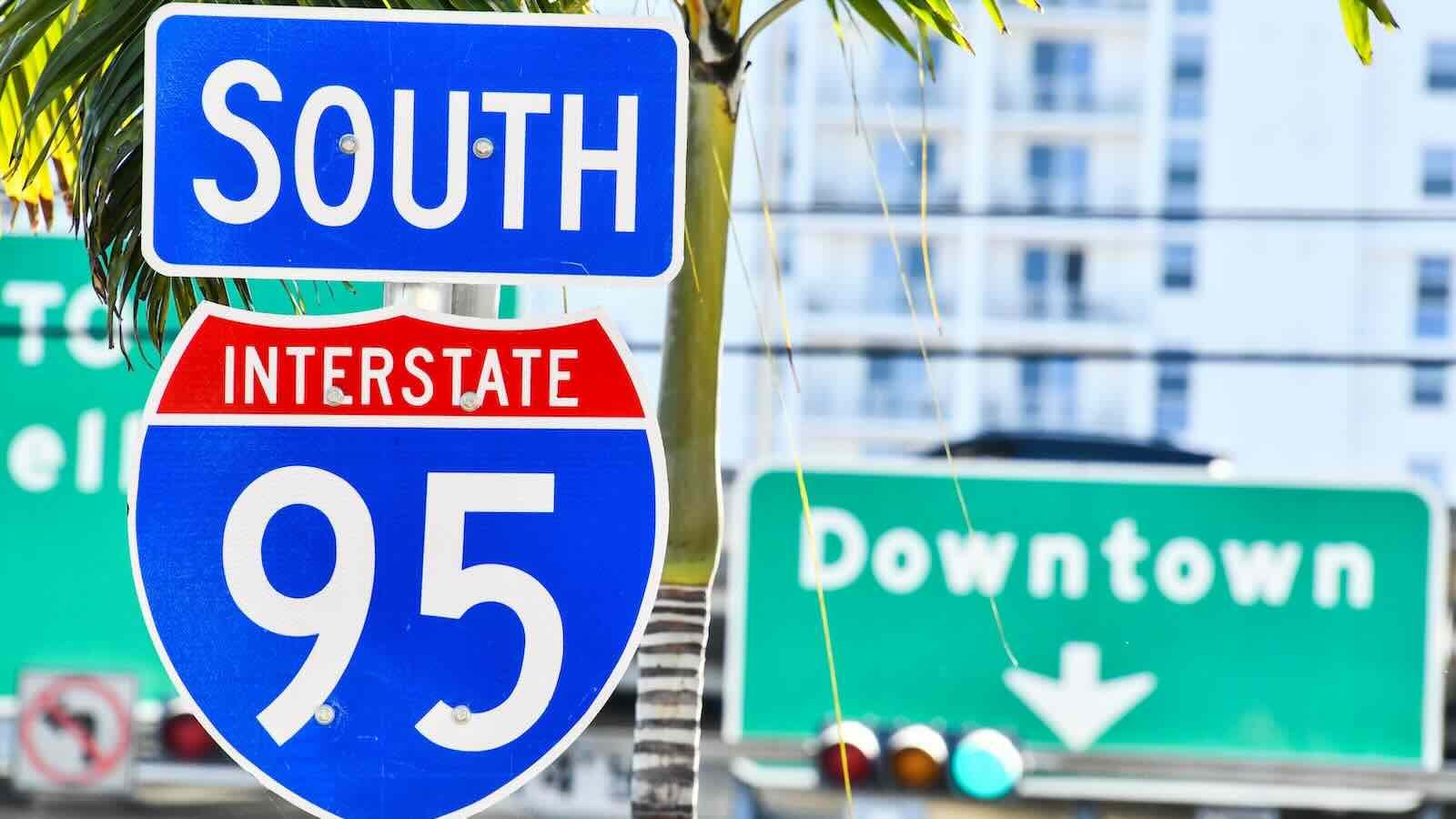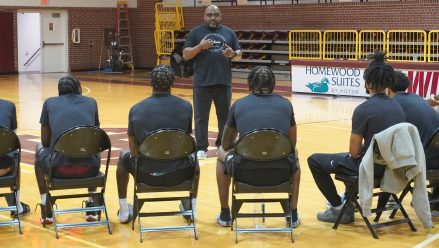There are very few positives of living in New Jersey.
Good diners, pizzas, and the Jersey Shore crowd the top of a short list. Otherwise, few positive attributes can be bestowed upon my current state of residence. The Sopranos reached perfection, but it was a fictional television show. Bruce Springsteen isn’t the beloved Patron Saint of the Garden State, a marketing fallacy somehow believed by the masses.
But after recently leaving the state to drive down the East Coast to Florida, I now praise New Jersey as a state that excels above the rest. It is the best state to make legal sports wagers.
That notion is only reinforced when a bettor accustomed to the ways of New Jersey leaves the state and experiences making legal wagers elsewhere. It can be easy to take for granted the state that proved to be the Lexington and Concord in the battle for legalized sports betting.
Of course it’s not perfect, the betting menu has reduced over the years at the behest of the publicly traded, profit-driven companies taking the action. Still the futures and prop options are deeper than what is available in Nevada.
As a self-proclaimed recreational-professional bettor driving down the Eastern Seaboard during a busy period of the sports calendar with both the NBA Finals and NHL Finals in full swing, here are some of my experiences as a New Jersey fish out of his normal wagering waters.
Maryland
All good here.
Betting in this state is basically the same as New Jersey.
There are some differences in the Mid-Atlantic markets but being so close to home where I already made some wagers, I didn’t encounter any issues.
Virginia
That changed, however, as the mileage racked up and it was time to enter the Commonwealth.
After a long day’s drive, I timed my stop to coincide with Game 2 of the Stanley Cup Finals. I had Florida’s Sam Bennett at 38-1 for Conn Smythe and wanted to add on after he scored his third goal of the series.
In a hotel room, my frustration grew while I searched all the books for the live Conn Smythe board as Bennett was racking up one strong shift after another. Back home, this wager would have been made. Then it became apparent that Virginia doesn’t allow bets on awards.
Being in this state wound up costing me a wager with healthy plus odds that proved to be a winner.
That caused some pain and then reflection on how this particular state’s rules against betting on subjective wagers like awards may seem like governmental overreach but in reality, it benefits the books.
Awards markets are one of the best ways a bettor can reduce the edge held by the house. So much of handicapping awards is following the games and related media content closely — something bettors and books can do evenly. In this case, the books like having their hands tied by regulations.
From my perspective as a New Jersey-based bettor accustomed to wagering on awards for all sports, this was a significant hindrance. My strength is handicapping these awards and just hitting on a few with their plus odds can help wipe out plenty of poor daily wagers. Being in Virginia, at that moment, wanting to add on to Bennett prevented me from putting a much needed Band-Aid on my bankroll.
North Carolina
Great, the Tar Heel State does have legalized sports betting and I am within the borders the following day. One problem existed, though. There were no bets I wanted to make during my transitory time in North Carolina.
A betting philosophy I often preach is not to make bets just because they are available. I heeded my own advice.
South Carolina
The next state on my trek was where I encountered my most difficult situation. It highlighted how legalized wagering has created a mindset so plentiful in the northeast states.
One way to increase the chances of success is to track games, follow them closely, and make wagers accordingly from both a qualitative and quantitative perspective. Watching games with motivation to bet on them is now how so many of us consume sports these days.
So I was in the car intently listening to SEC Radio’s coverage of the College World Series super regional contest between West Virginia and host LSU. During this close game, the announcers mentioned how it appeared the humidity was getting to the WVU pitcher during the fourth inning.
This is the type of actionable information we as bettors need to act on and I pulled off the next exit to do so. Here was the opportunity to wager on the Tigers, the pre-flop favorite, at a discount.
The chance to do so never came to fruition because I was immediately alerted by DraftKings that betting wasn’t allowed in this state.
I found this out only moments before the announcer described a Derek Currel three-run HR that gave the Bayou Bengals a lead they never relinquished.
When you constantly handicap and wager, you expect to have the ability to bet on the action regardless of what a geo-locator states. After seven years, sports betting has become a major part of media consumption, and when it is not available because one is located in a different state, it creates frustration.
Unlike in the past, when it didn’t matter where you were, you just called your guy to place the action.
Damn you, South Carolina.
Georgia
New state, still no legal sports betting offered within the borders. Positive though — multiple Buc-ee’s locations kicking out the best brisket sandwich outside of Texas.
Florida
I finally made it to my final destination, a state with legalized sport betting.
I was filled with optimism about finally making some more College World Series bets. My initial optimism then turned into disappointment in a way reminiscent of Joe Buck’s entrance into the Sunshine State.
No, not that one; Jon Voight’s character in Midnight Cowboy.
Yes, there is legalized wagering, but it comes from a complete monopolistic entity in Hard Rock Bet. Only one betting option for those in Florida. That translates into just one book setting lines and therefore not overly interested in customer satisfaction. Hard Rock is part of my outs back in New Jersey, but now in Florida it was a far different experience.
Its futures boards, the College World Series for example, were only offered sporadically. Also, after a few wagers, I was limited to $25 for NHL action.
After comparing the lines to those listed by DraftKings and FanDuel, Hard Rock’s odds came at a higher price. The comparison between these books also demonstrated how many fewer options and props Hard Rock Bet had for golf’s U.S. Open.
As the legalized marketplace has evolved, it is clear that most national books don’t want sharp action and are not interested in accepting big wagers. Some jurisdictions and books use marketing to deflect attention away from this.
Give it to Hard Rock, they certainly don’t hide it.
It felt like Hard Rock set a trap intended to catch all those travelers from the northeast region who have become accustomed to wagering back home.
The Florida gaming commission might as well post billboards on 1-95 stating, “Welcome to the home of off-shore betting.”
Round trip
During my time in Florida, the Stanley Cup Finals and the CWS wrapped up, meaning my betting areas were waning.
That led to a positive result of this trip: the bad feelings I had for Hard Rock Bet forced me to put the phone down and perform a little healthy detox from sports betting.
I relaxed and gazed into the crystal clear Atlantic Ocean without worrying about scores and odds.
Eventually my time in Florida came to an end. Heading home, there was no need to mull over the various betting options in different states, since I flew back to New Jersey.
Once my plane landed on the tarmac of Newark Airport, I immediately went to DraftKings and placed some wagers on college football look-ahead lines I had been eyeing over the past few weeks.






